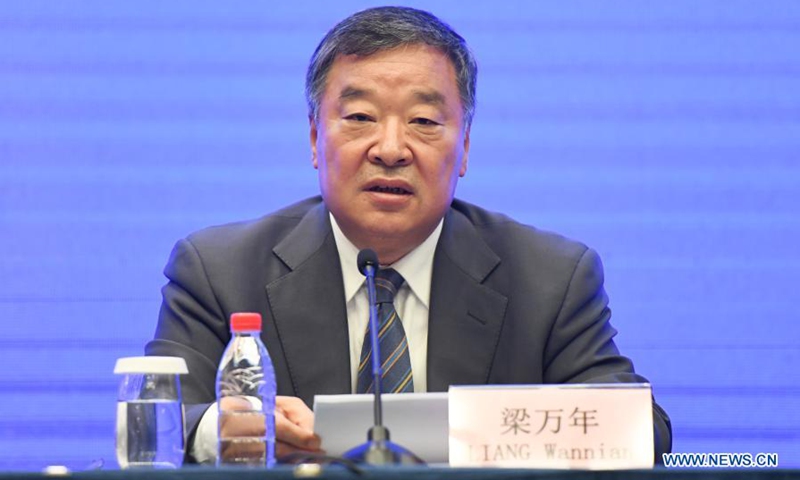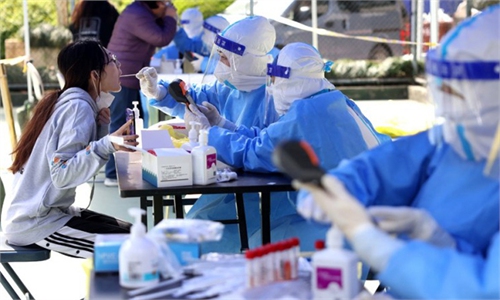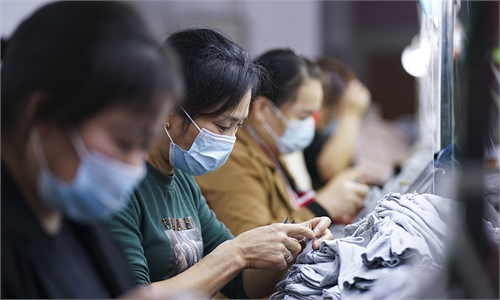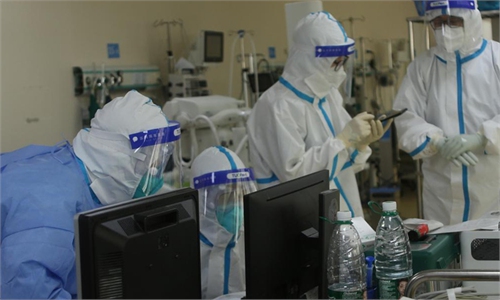Pursuing zero-COVID policy is to avoid citywide lockdowns as much as possible: top Chinese health expert

Liang Wannian. Photo:Xinhua
Pursuing dynamic zero-COVID policy does not mean citywide lockdowns, on the contrary, one of the goals for zero-COVID policy is to avoid citywide lockdowns as much as possible, Liang Wannian, China's head of the COVID response expert panel under the National Health Commission, said at a Friday press conference.
Citywide static management can be effectively avoided after implementing measures focused on "early detection, early reporting, early quarantine and early treatment," and setting the responsibilities of various departments, Liang said.
He said there is no need for citywide static management during the early stage of epidemic when transmission chains are clear and risks are controllable, but governments have to decide whether to take stricter measures including the scale and duration of static management measures amid widespread community transmission and unclear transmission chains.
it is necessary to strengthen rapid, decisive and thorough prevention and control measures and beef up targeted and scientific measures to strike a balance between epidemic prevention and control taking consideration of the characteristics of Omicron variant, and a one-size-fits-all approach,inaction and slow action should be avoided, Liang said.
As for how to carry out more scientific and targeted measures, Liang said that China should step up monitoring of the disease to find out the infections as early as possible, and design emergency plans on personnel training, medical supply at makeshift hospitals, designated hospitals and food supply for residents.
He stressed the priority of communities as part of China's COVID policy. Liang said communities are the front line and first line of defense for China's epidemic control under the zero-COVID policy, unlike other countries in which the first line of defense are medical institutions.
The governance, coordination, management of communities are key for effective epidemic prevention and control and two years' practice has proved that containing community transmissions can effectively block the spread of the virus and achieve zero-COVID policy, Liang said.
Following the May Day holidays, China's daily new cases have witnessed a marked decline. China reported around 5,800 new daily cases on average from April 30 to May 5, down 80 percent from the peak.
Shanghai's epidemic prevention and control has been stabilized with new cases continuing to fall, while Beijing's risks of virus spread has been lowered through multiple rounds of district wide nucleic acid testing, Wu Liangyou, an official with China's National Health Commission said at the press conference. Wu said that China's epidemic prevention and control situations have stabilized since May, with 21 provinces now classified as low-risk areas, but there remains a risk of COVID rebound and the situations remain grim and complex.
On Thursday, a meeting of the Standing Committee of the Political Bureau of the Communist Party of China (CPC) Central Committee, chaired by Xi Jinping, general secretary of the CPC Central Committee stressed the importance of unswervingly adhering to the dynamic zero-COVID policy and resolutely fighting any attempts to distort, question or dismiss China's anti-COVID policy.
China will surely win the war against COVID-19 with its scientific and effective epidemic control policy that will stand the test of time, according to the meeting.
Global Times



